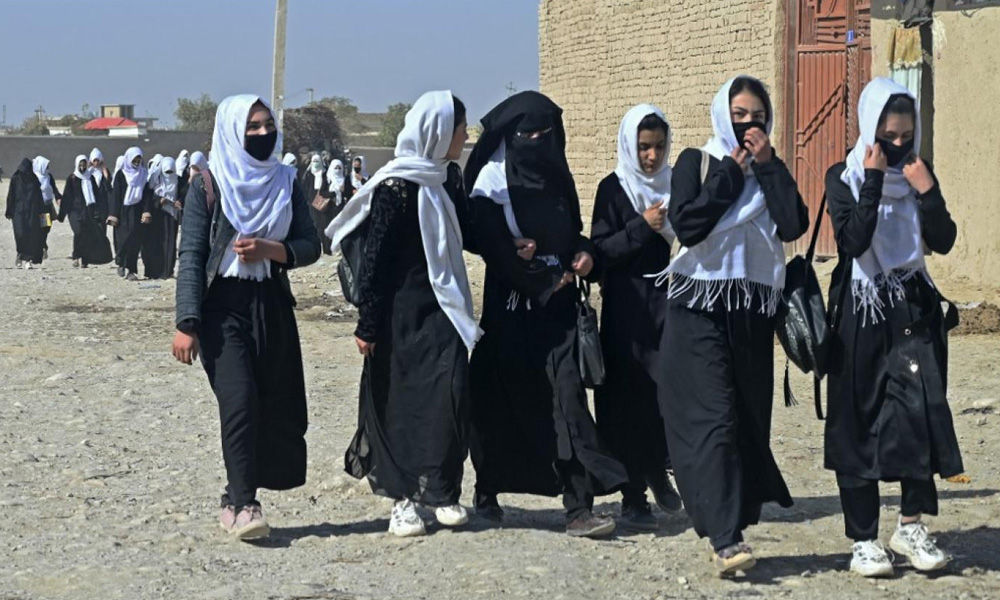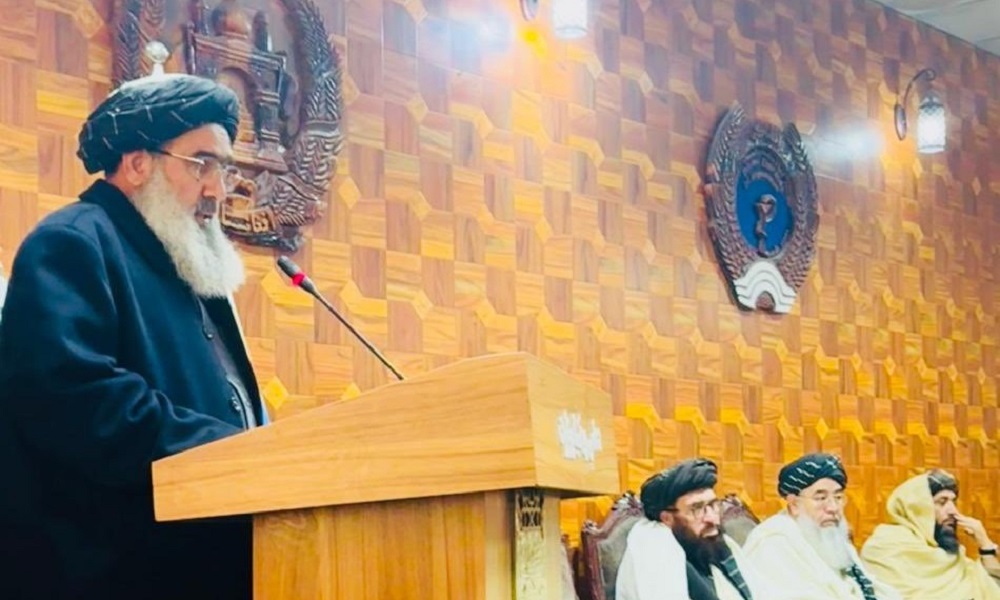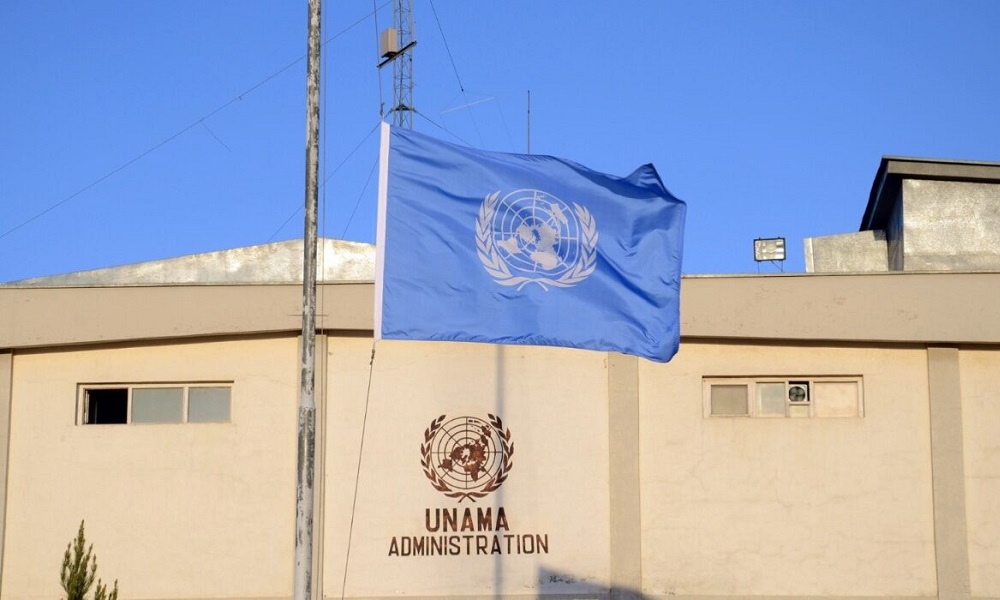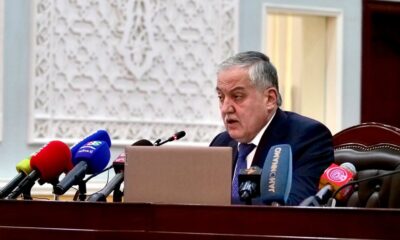Latest News
IEA to open high schools for girls next week

The Islamic Emirate of Afghanistan (IEA) will allow girls around Afghanistan to return to class when high schools open next week, an education official said on Thursday, after months of uncertainty over whether the IEA would allow full access to education for girls and women, Reuters reported.
“All schools are going to open to all boys and girls,” Aziz Ahmad Rayan, a spokesman for the Ministry of Education, told Reuters.
“But there are some conditions for girls,” he said, adding that female students would be taught separately from males and only by female teachers.
In some rural areas where there was a shortage of female teachers, he said that older male teachers would be allowed to teach girls, Reuters reported.
“There is no school that will close for this year. If there is any school that closes, it is the responsibility of the education ministry to open it,” Rayan added.
Allowing girls and women into schools and colleges has been one of the key demands the international community has made of the IEA since it toppled the Western-backed government last August.
Most countries have so far refused to formally recognise the IEA, amid concerns over their treatment of girls and women and allegations of human rights abuses against former soldiers and officials from the ousted administration.
The IEA have vowed to investigate alleged abuses, and say they are not seeking revenge on their former enemies.
The last time the IEA ruled Afghanistan, from 1996 to 2001, they banned female education and most employment. Since regaining power, boys and men have returned to education in far greater number than girls and women, Reuters reported.
The Islamic Emirate (IE) is seeking to run the country according to its interpretation of Islamic law while at the same time accessing billions of dollars in development aid that it desperately needs to stave off widespread poverty and hunger.
Sanctions against some leading members of the group have complicated the situation.
The IEA say they respect women’s rights in accordance with Islamic law and local custom. But many women have reported restrictions on access to public life, including jobs, forcing some to drop out of the workforce.
Heather Barr, associate women’s rights director at Human Rights Watch, urged the international community against complacency after the announcement.
“There has been a huge focus by donors on girls’ secondary schools — multiple donors have told me they see this issue as ‘totemic’,” she said.
Barr added that reopening schools would not necessarily mean that the broader rights of women and girls in society would be protected.
Seventeen-year-old Farzana said she was already washing and ironing her uniform as she anticipated joining her friends in her Kabul classroom. After six months at home, she said she and others had struggled mentally being away from studies.
“I feel very powerful. We can show not only (the Taliban) but also the world (that) we never stop, and Afghanistan won’t return to previous decades,” she said.
Latest News
Ministries of Public Health and Higher Education sign cooperation agreement

The Ministry of Public Health announced on Tuesday it has signed a cooperation agreement with the Ministry of Higher Education aimed at expanding scientific, research, educational, and technical cooperation.
At the signing ceremony held in Kabul, Noor Jalal Jalali, Minister of Public Health, said that the agreement would lead to significant improvements in the capacity-building of students and doctors, ensure that research is conducted based on evidence, and enable the collection of accurate data.
Meanwhile, Neda Mohammad Nadeem, Minister of Higher Education, described the agreement as beneficial to the public and to both institutions, stressing the need to train individuals at universities who can contribute to social development and make the country self-sufficient in the public health sector.
Latest News
UNAMA holds new round of Working Group meetings on counter-narcotics and private sector

The United Nations Assistance Mission in Afghanistan (UNAMA) has convened a new round of Doha Process Working Group meetings focusing on counter-narcotics and private sector development.
The meetings, held in Kabul on February 3 and 9, brought together representatives of UN member states and international organizations, officials of the Islamic Emirate, and subject-matter experts.
According to UNAMA, discussions in the counter-narcotics working group centered on efforts by Islamic Emirate authorities and the international community to support alternative livelihoods for Afghans previously dependent on poppy cultivation and the illicit opium trade. Participants also reviewed drug-use prevention and treatment initiatives, as well as law-enforcement measures to curb narcotics production and trafficking.
The private sector working group focused on job creation and entrepreneurship, with particular attention to women’s participation in the private sector, market integration, access to finance, and the development of private banking and financial infrastructure.
UNAMA said both working groups identified priority areas for enhanced engagement and explored more effective and sustainable approaches to supporting Afghan men and women. Participants also examined the linkages between the two areas, noting that private sector development is a key source of livelihoods, while counter-narcotics efforts contribute to Afghanistan’s economic and social stability.
The working groups were established following the third Meeting of Special Envoys held in Doha, Qatar, in June and July 2024, in line with recommendations of the Independent Assessment endorsed by the UN Security Council. The process aims to promote more coherent, coordinated, and structured engagement with Afghanistan’s de facto authorities for the benefit of the Afghan people.
UNAMA added that stakeholders engage in the working groups on an ongoing basis, with full-format meetings convened periodically. Since their establishment, the groups have improved information-sharing, helped mobilize additional resources, and facilitated expert exchanges to strengthen support for the Afghan people.
Latest News
Economic Commission approves national policy for development of agriculture

At a regular meeting of the Economic Commission chaired by Mullah Abdul Ghani Baradar, Deputy Prime Minister for Economic Affairs, the National Policy for the Development of the Agriculture and Livestock Sector was approved.
According to a statement from the deputy PM’s office, the key objectives of the policy include the mechanization of the agriculture and livestock sector; development of agricultural, irrigation, and livestock research and extension systems; management of irrigation systems; support for investment in these sectors; and ensuring public access to high-quality agricultural and animal products.
During the same meeting, the development plan for the fish farming sector was also approved.
Under this plan, through private sector investment, 7,700 small, medium, and large fish production and farming facilities will be established on 6,500 hectares of land in various parts of the country.
The statement added that the implementation of this plan will create direct employment opportunities for 50,000 people and indirect employment for 250,000 others.
-

 Latest News3 days ago
Latest News3 days agoAfghanistan to grant one- to ten-year residency to foreign investors
-

 Sport5 days ago
Sport5 days agoIndonesia shock Japan to reach historic AFC Futsal Asian Cup final
-

 Sport3 days ago
Sport3 days agoIran clinch AFC Futsal Asian Cup 2026 in penalty shootout thriller
-

 Latest News4 days ago
Latest News4 days agoAfghanistan says Pakistan is shifting blame for its own security failures
-

 International Sports2 days ago
International Sports2 days agoWinter Olympics gain momentum as medal table takes shape
-

 Latest News3 days ago
Latest News3 days agoTraffic police receive new cars
-

 Regional4 days ago
Regional4 days agoIran’s FM calls Oman-mediated talks with US ‘good start’
-

 Latest News2 days ago
Latest News2 days agoTajik foreign minister urges international community to help Afghanistan address its challenges
























